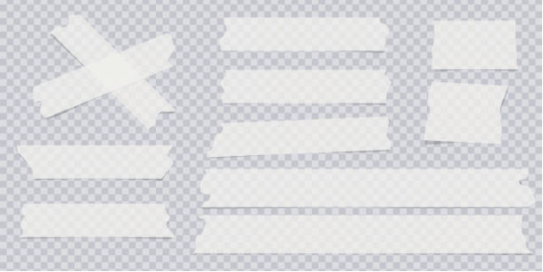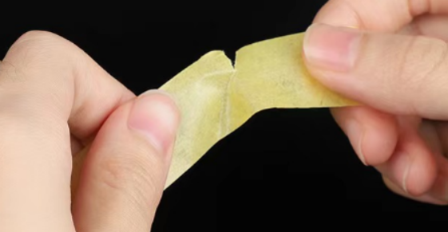
Introduction
Walk onto any construction site today and you’ll see rolls of tape everywhere. Some hold temporary covers in place, others guide painting jobs, while a few mark out areas that shouldn’t be crossed. Among them, masking tape has become one of those small tools people barely notice but can’t really work without. It’s cheap, simple, and when chosen well saves hours of rework. In modern construction projects where deadlines are tight and finishing standards are higher than ever, masking tape quietly does a big job.
Why Masking Tape Matters in Construction
Surface Protection
Think of a newly installed glass window frame during painting. Without masking tape, paint spray or roller marks end up on the frame. Cleaning it later eats up time and sometimes scratches the surface. A good masking tape prevents this mess. In many construction jobs, protecting surfaces like tiles, wood panels, or fixtures is not a luxury; it’s part of delivering a clean handover.
Clean Painting Edges
Every client notices the details. Uneven paint lines along a wall or ceiling corner can ruin an otherwise neat job. Masking tape helps painters create straight, sharp edges. It reduces the chance of paint bleeding under the edge when applied correctly. Contractors who rely on masking tape often say the tape is like an invisible assistant that keeps finishing quality under control.
Temporary Holding and Labeling
Construction sites are lively, bustling spots. Workers often grab masking tape to secure lightweight items briefly or mark tools. This may seem minor, but tiny organizing tricks can really help when many people work together on one site.
Common Challenges with Masking Tape in Construction
Adhesion Problems
Cheap masking tape often fails to stick properly, especially on dusty or uneven surfaces. Picture taping a wall’s edge, only to find the tape curling up during painting. On the flip side, tape that grips too tightly can harm fragile surfaces when pulled off. Striking a balance between strong hold and easy removal is where good tape shines.

Residue Issues
Workers grumble about gooey leftovers from tape. This sticky mess wastes time to clean and might ruin surfaces. It often happens with low quality tape or when tape sits too long in heat or bright sunlight.
Environmental Conditions
Outdoor jobs bring unique hurdles. Sun, rain, and changing temperatures can weaken tape. A tape that works well inside might flop outside. Skilled construction crews need masking tapes designed to handle tough weather.
How High Quality Masking Tape Improves Efficiency
Saving Time
Every avoided cleanup, every avoided repaint, adds up. Good masking tape helps workers move faster because they don’t need to spend hours fixing mistakes. For contractors, this is not just convenience,it translates to real cost savings.
Reducing Material Waste
Without proper tape, spilled paint or adhesive damages surfaces, leading to wasted material and replacement costs. Proper use of masking tape minimizes such waste, which is especially important on large projects.
Enhancing Final Product Quality
Clients may not notice when masking tape is used correctly, but they always notice when it’s not. Clean finishes, sharp edges, and undamaged surfaces create the impression of professional work. In competitive construction markets, reputation often hinges on such details.
QKD Tape: A Reliable Partner in Construction Projects
QKD Tape has grown into a trusted manufacturer of masking and warning tapes, serving customers across different construction sectors. With a focus on product reliability, the company designs tapes that handle real-world job site conditions dusty, hot, or damp. One reason many contractors return to QKD is the company’s attention to detail and customer needs. They also offer a QKD Tape Customization Service for projects requiring tailored solutions.
Choosing the Right Masking Tape for Construction
Consider Surface Type
Smooth glass needs a different adhesive strength than rough concrete. Always match the tape to the surface.
Duration of Application
If the tape needs to stay on for several days, pick one designed for longer hold without residue. Some tapes are rated for 3 days, others for 14 days or more.
Indoor vs. Outdoor Use
Outdoor jobs require UV-resistant and weatherproof masking tapes. Using indoor tape outside is asking for trouble.
Tape Width
Narrow tape helps with detailed edges, while wider tape provides stronger coverage and protection. Contractors often keep different widths on hand for flexibility.
Real World Example
On a mid size office renovation project in Singapore, contractors used masking tape to protect glass panels and steel trims during painting. By choosing high quality tape, they cut cleanup time by nearly 40 percent compared to a previous project where cheaper tape had been used. Workers reported fewer issues with residue, and the project manager noted smoother progress with less rework.
Conclusion
Masking tape might not steal the spotlight on construction sites, but it plays a big role in making the final work look neat or sloppy. It shields fragile surfaces and keeps paint edges crisp. Its job is vital. Picking a trusty product, like those from QKD Tape, lets construction crews save time. It also cuts down on waste. Plus, it helps them wrap up projects with pride. Often, the tiniest tools have the greatest impact.
FAQs
1. Why is masking tape important in construction projects?
Masking tape keeps surfaces safe and makes paint lines neat. It cuts down cleanup time. On crowded construction sites, it’s a vital tool for working fast and keeping quality high.
2. How do I avoid residue when using masking tape?
Pick a top-notch masking tape made for easy, clean peeling. Also, take it off within the suggested time. This is super important in hot or outdoor spots.
3. Can I use the same masking tape for indoor and outdoor construction?
Not really. Outdoor jobs often need UV-resistant and weatherproof masking tape. Indoor projects can stick with regular kinds.
4. What makes QKD Tape different from other tape brands?
QKD Tape is all about being sturdy, peeling off cleanly, and sticking well. Their masking tapes are tested for tough construction settings.
5. How do I choose the right masking tape width for a construction job?
Use thin tape for precise edges. Grab wider tape for bigger surface cover. Workers usually keep a few sizes ready for different tasks.
